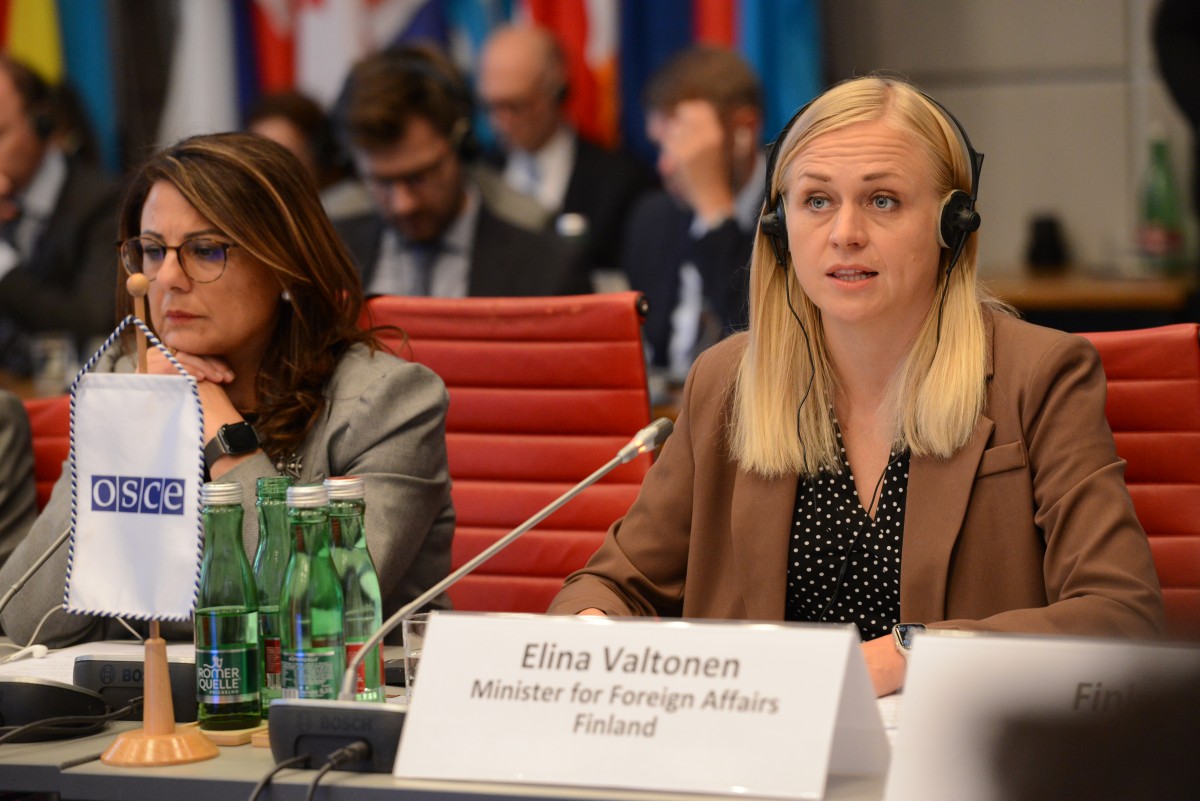Sponsored Content
Finland Takes Over OSCE Chairmanship: Focus on Resilience and Ukraine Support
In 2025, the 50th anniversary year of the Helsinki Final Act, Finland will assume the Chairmanship of the Organization for Security and Co-operation in Europe (OSCE). With a clear focus on strengthening the resilience of the participating states and the organization, Finland is taking on a central role in Europe, marked by geopolitical tensions.
 Foreign Minister Elina Valtonen, the new OSCE Chairperson-in-Office, stated: “The principles of the Helsinki Final Act must be defended more strongly than ever. When Russia challenges the foundations of our common security, we must act decisively.” / Picture: © OSCE / ID 576549, (CC BY-ND 4.0)
Foreign Minister Elina Valtonen, the new OSCE Chairperson-in-Office, stated: “The principles of the Helsinki Final Act must be defended more strongly than ever. When Russia challenges the foundations of our common security, we must act decisively.” / Picture: © OSCE / ID 576549, (CC BY-ND 4.0)
The Helsinki Final Act, signed in 1975, marked a turning point for the European security order. Its principles - such as the inviolability of frontiers, territorial integrity, and the peaceful settlement of disputes - still form the foundation of the OSCE today. With its current chairmanship, Finland is emphasizing the need to defend these principles, especially in view of the…
or Log In
Fast News Search





